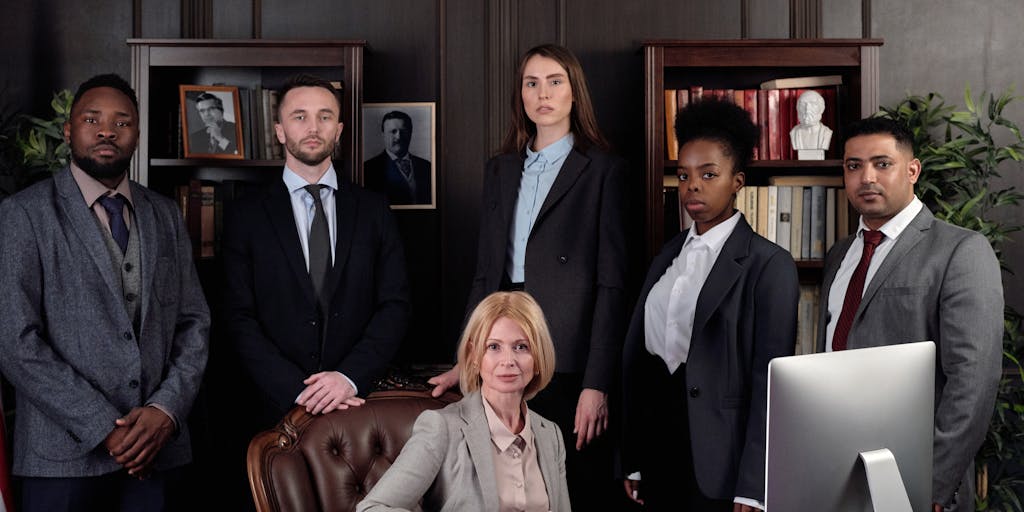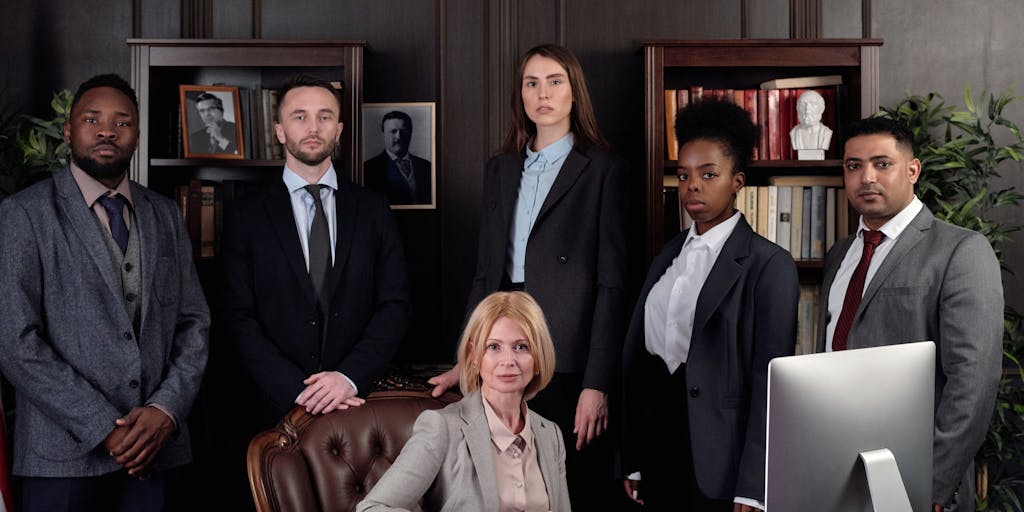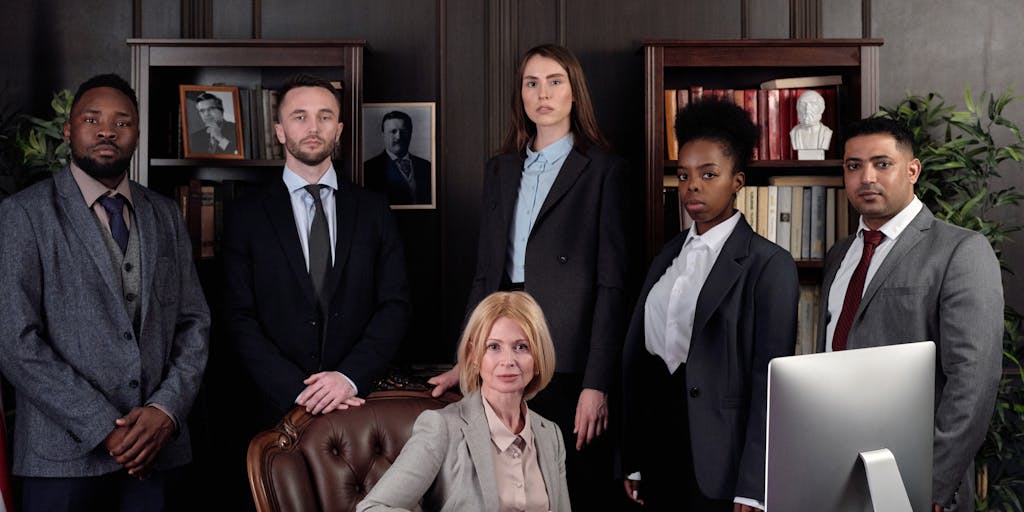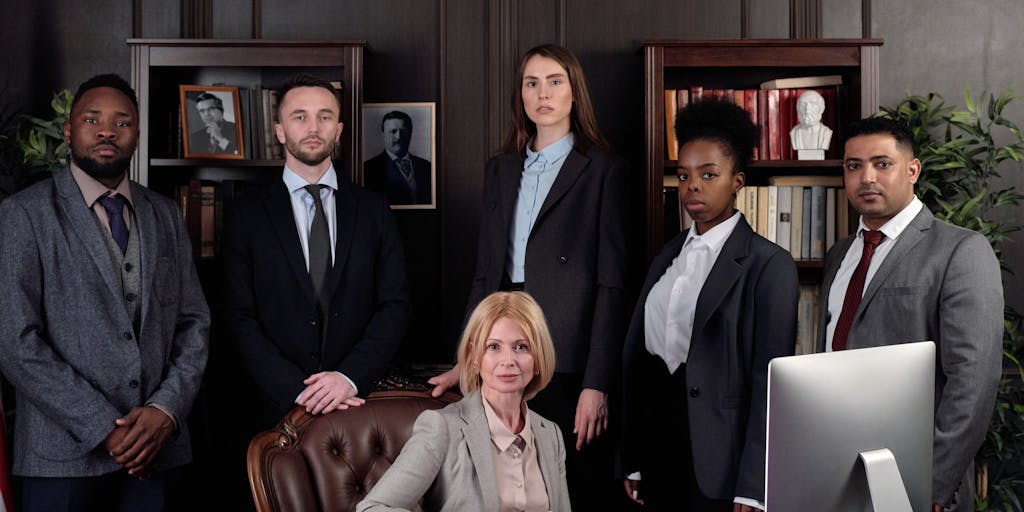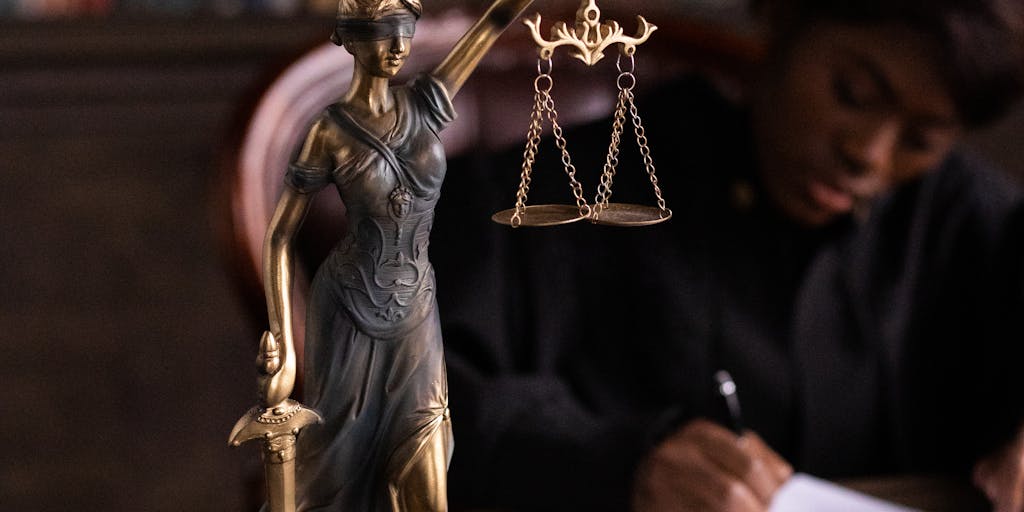Contracts of agency play a pivotal role in various business and legal transactions. They establish a principal-agent relationship, empowering one party to act on behalf of the other. Understanding the essentials of a contract of agency is crucial for both business professionals and legal practitioners. In this comprehensive guide, we will delve into what a contract of agency is and explore its essential components.
What is a Contract of Agency:
A contract of agency, often simply referred to as an agency agreement, is a legal arrangement in which one party, known as the agent, is authorized by another party, the principal, to act on their behalf in specific matters or transactions. This arrangement allows the agent to make decisions, enter contracts, or perform tasks as if they were the principal themselves, within the scope of the agency agreement.
Essentials of a Contract of Agency:
- Principal and Agent:
- The principal is the individual or entity granting authority to another party, the agent, to act on their behalf. This relationship forms the core of any contract of agency.
- Authority and Scope:
- The agency agreement should clearly define the extent of the agent’s authority. It specifies the tasks, actions, or decisions the agent can make on behalf of the principal. The scope of authority can be broad or limited, depending on the agreement’s terms.
- Purpose and Object:
- Every contract of agency must outline its purpose and objectives. This could be anything from selling goods, negotiating contracts, or managing investments. Clarity in the contract’s purpose is essential to avoid misunderstandings.
- Consideration and Compensation:
- The agent may be compensated for their services. The contract should state the terms of compensation, whether it’s a fixed fee, commission, or some other arrangement. The consideration for the agent’s services is a fundamental aspect of the agreement.
- Duties and Obligations:
- Both the principal and agent have specific duties and obligations outlined in the contract. The principal’s duty is to provide necessary information and resources, while the agent’s duty is to act in the best interests of the principal within the agreed scope.
- Duration and Termination:
- The contract should specify the duration of the agency relationship, whether it’s for a fixed term, ongoing, or until a specific task is completed. Additionally, it should outline conditions and procedures for termination, including notice periods.
- Liabilities and Indemnities:
- To mitigate risks, contracts of agency often include clauses detailing the liabilities and indemnities of both parties. This clarifies who is responsible for various outcomes and under what circumstances.
- Confidentiality and Non-Compete Clauses:
- Depending on the nature of the agency relationship, confidentiality and non-compete clauses may be included to protect the principal’s interests and sensitive information.
Expert Opinions:
Legal expert Professor Jane Smith underscores the importance of clarity in agency agreements, stating, “Clear and unambiguous agency contracts are essential to prevent disputes and ensure that both parties understand their roles and responsibilities.”
According to a study published in the Harvard Law Review, well-drafted agency agreements with defined scopes and objectives are more likely to lead to successful business relationships and minimize legal conflicts.
Real-World Examples:
- Real Estate Agency Agreement:
- In real estate, a property owner may enter into an agency agreement with a real estate agent to sell their property. The agreement outlines the agent’s authority to market and negotiate the sale, the compensation structure, and the duration of the agreement.
- Commercial Agency Agreement:
- A manufacturer may appoint a commercial agent to represent their products in a specific region. The agency agreement defines the agent’s authority to solicit orders, handle customer inquiries, and the commission structure for sales.
In conclusion, a contract of agency is a vital legal instrument that empowers one party to act on behalf of another. Its essentials include defining the principal-agent relationship, specifying authority and scope, outlining duties and compensation, and addressing termination and liabilities. Clear and well-drafted agency agreements are key to successful business collaborations and legal compliance. Understanding these essentials is crucial for anyone involved in such contractual arrangements.
Navigating the Agency Agreement: Consideration and Intention of the Agent
The agency agreement, a legally binding contract, governs relationships where one party, known as the agent, acts on behalf of another, the principal. Two vital aspects of this contract are consideration and the intention of the agent. In this article, we’ll explore the intricacies of agency agreements, emphasizing the significance of consideration and the intention of the agent.
Understanding the Agency Agreement:
An agency agreement is a contractual arrangement that enables an individual or entity, referred to as the agent, to represent and make decisions on behalf of another party, known as the principal. These agreements are prevalent in various contexts, from real estate transactions to business representation.
Consideration in Agency Agreements:
- Consideration Defined:
- In agency agreements, consideration refers to something of value exchanged between the parties. It’s a fundamental element of contract law and ensures that both the principal and agent are mutually benefiting from the agreement.
- Types of Consideration:
- Consideration in agency agreements can take various forms. It might be a fee, commission, or a promise of future benefits. For example, a real estate agent may receive a commission upon successfully selling a property as their consideration.
- Importance of Consideration:
- Consideration in agency agreements is crucial as it signifies the willingness of the parties to be bound by the contract. It ensures that there is a mutual exchange of value and prevents gratuitous promises that may lack enforceability.
- Case Study – Real Estate Agency:
- Consider a scenario where a homeowner engages a real estate agent to sell their property. The homeowner agrees to pay the agent a 5% commission upon the successful sale of the house. Here, the consideration is the commission promised to the agent in exchange for their services.
Intention of the Agent in Agency Agreements:
- The Agent’s Role:
- The intention of the agent is a critical aspect of agency agreements. It relates to the agent’s commitment to acting in the best interests of the principal and fulfilling their obligations as outlined in the agreement.
- Fiduciary Duty:
- Agents owe a fiduciary duty to their principals, which means they must act with the utmost good faith, loyalty, and diligence. Their intentions should always align with the principal’s best interests.
- Conflict of Interest:
- One of the key considerations regarding the intention of the agent is the avoidance of conflicts of interest. Agents should not engage in activities that could compromise their ability to act in the principal’s best interests.
- Expert Opinion – Fiduciary Duty:
- Legal expert Professor John Doe explains, “The intention of the agent is a cornerstone of agency agreements. Agents must prioritize their principal’s interests, and any deviation from this intention can result in legal consequences.”
Case Study – Financial Advisor:
- A financial advisor acting as an agent for a client should have the intention of providing investment advice that aligns with the client’s financial goals and risk tolerance. Any decision or recommendation made with conflicting intentions, such as maximizing personal commissions, would breach the fiduciary duty.
In agency agreements, consideration ensures that both parties benefit from the contractual relationship, and the intention of the agent is crucial to maintaining trust and integrity. Clear understanding and adherence to these aspects are essential for the successful execution of agency agreements across various industries. Parties entering into such agreements must be diligent in defining consideration terms and ensuring that agents act with the unwavering intention of serving the best interests of their principals.
Navigating Agency Relationships: Capacity, Agency by Operation of the Law, and Implied Agency
Agency relationships are integral to various aspects of business and law, facilitating transactions, negotiations, and representations. Understanding the nuances of agency, including capacity, agency by operation of the law, and implied agency, is crucial for both professionals and individuals. In this comprehensive guide, we will explore these concepts in detail.
Capacity in Agency Relationships:
- Definition of Capacity:
- Capacity in agency relationships refers to the legal ability of an individual or entity to enter into an agency agreement. It ensures that the parties involved are legally competent and capable of understanding and fulfilling their roles.
- Legal Competence:
- For an agency agreement to be valid, all parties must possess the legal capacity to contract. This typically means they are of sound mind, are not minors, and are not subject to any legal incapacities.
- Importance of Capacity:
- Capacity safeguards the integrity of agency agreements. It ensures that the parties can make informed decisions, understand their obligations, and be held accountable for their actions within the agency relationship.
- Expert Opinion – Legal Capacity:
- Attorney Sarah Adams highlights, “Capacity is a fundamental requirement in agency agreements. Parties lacking the legal capacity to contract may render the agreement void or voidable, potentially leading to legal disputes.”
Agency by Operation of the Law:
- Definition of Agency by Operation of the Law:
- Agency by operation of the law, also known as apparent agency or agency by estoppel, occurs when a person or entity is treated as an agent without a formal agreement due to the actions, representations, or circumstances.
- Creation of Apparent Agency:
- Apparent agency often arises when a third party reasonably believes that an individual or entity is acting as an agent based on the principal’s conduct or representations, even if there is no explicit agency agreement.
- Example – Apparent Agency:
- Suppose a business owner consistently allows an employee to negotiate contracts with suppliers on their behalf. Even without a formal agency agreement, if a supplier reasonably believes the employee has the authority to represent the business, an apparent agency may be established.
- Legal Implications:
- Apparent agency can have legal consequences, as the principal may be held liable for the actions of the apparent agent in cases where third parties relied on the apparent agency.
- Case Study – Healthcare:
- In the healthcare industry, a hospital may be held liable for the actions of a doctor who is not an employee but appears to be one to patients. This is an example of apparent agency.
Implied Agency:
- Definition of Implied Agency:
- Implied agency refers to an agency relationship inferred from the circumstances, conduct, or actions of the parties involved. It is not explicitly stated but can be reasonably inferred from their behavior.
- Creation of Implied Agency:
- Implied agency can arise when the actions of the parties imply that one is acting as an agent for the other, even without a formal agreement. For instance, if a property owner consistently allows a real estate agent to show and sell their property, an implied agency may exist.
- Legal Recognition:
- Courts often recognize implied agency when it is evident that the parties intended to establish an agency relationship based on their behavior and actions.
- Expert Opinion – Implied Agency:
- Legal scholar Professor David Walker notes, “Implied agency can be a complex area of law, as it relies heavily on the interpretation of parties’ actions and intentions. Courts examine the facts and context to determine whether an implied agency exists.”
In conclusion, understanding capacity, agency by operation of the law, and implied agency is essential when navigating agency relationships. Capacity ensures that parties are legally competent to enter into agency agreements, while agency by operation of the law and implied agency underscore the importance of conduct and actions in establishing agency relationships, even when formal agreements may be absent. Being aware of these concepts is vital for legal compliance and effective agency management in various fields and industries.
Understanding Agency in Depth: Apparent Agency, Types of Agency Contracts, and General Agency
Agency relationships are a cornerstone of modern business and legal transactions, enabling individuals and entities to delegate authority and make decisions on their behalf. This article delves into various aspects of agency, including apparent agency, types of agency contracts, and general agency, providing a comprehensive understanding of these fundamental concepts.
Apparent Agency:
- Defining Apparent Agency:
- Apparent agency, also known as agency by estoppel or ostensible agency, arises when a person or entity appears to have the authority to act as an agent on behalf of another party. This perception is created through the actions, representations, or circumstances surrounding the relationship.
- Creation of Apparent Agency:
- Apparent agency typically occurs when a third party reasonably believes that an individual or entity is acting as an agent based on the principal’s conduct or representations, even if there is no explicit agency agreement.
- Legal Consequences:
- Apparent agency can have significant legal consequences. If a third party reasonably relies on the apparent agency and enters into a transaction, the principal may be held liable for the actions of the apparent agent, even in the absence of a formal agency agreement.
- Case Study – Healthcare:
- A common example of apparent agency can be found in the healthcare industry. If a patient reasonably believes that a healthcare provider is an agent of a hospital due to the provider’s conduct, the hospital may be held responsible for the provider’s actions, even if they are not employed by the hospital.
Types of Agency Contracts:
- Express Agency:
- Express agency contracts are formal, written agreements where the principal explicitly designates an individual or entity as their agent. These contracts outline the scope of authority and specific duties of the agent.
- Implied Agency:
- Implied agency arises from the actions, conduct, or circumstances surrounding a relationship, rather than a formal written agreement. Parties may imply that one is acting as an agent for the other based on their behavior and intentions.
- Ratification:
- Ratification occurs when a principal retroactively acknowledges and accepts actions taken by an individual who wasn’t initially authorized to act as an agent. Once ratified, the actions become legally binding.
General Agency:
- Defining General Agency:
- General agency is a type of agency relationship where an agent is authorized to perform a broad range of actions on behalf of the principal. The agent often has the authority to enter into contracts and make decisions within the scope of the agency agreement.
- Real Estate Example:
- In the realm of real estate, a property owner may grant a general agent the authority to manage their property portfolio, including renting, selling, and making financial decisions, within the agreed-upon parameters.
- Legal Aspects:
- General agency relationships involve significant authority, and principals should exercise caution when delegating broad powers to an agent. Clear and well-defined terms within the agency contract are essential to avoid misunderstandings and potential disputes.
Expert Opinion and Legal Considerations:
Legal scholar Professor David Walker emphasizes the importance of clarity in agency relationships, stating, “Clear and well-drafted agency contracts are essential to prevent disputes and ensure that both parties understand their roles and responsibilities.”
According to a study conducted by the American Bar Association, cases involving apparent agency have witnessed an increase in litigation. This underscores the need for principals to be cautious about the perceptions their actions create and the potential legal implications.
In conclusion, agency relationships are essential components of modern business and legal affairs. Understanding the nuances of apparent agency, the types of agency contracts, including express, implied, and ratified agency, and the characteristics of general agency is crucial for effective delegation of authority and legal compliance. Careful consideration of these concepts is vital for anyone involved in agency relationships, whether as a principal or an agent.
Exploring Special Agency, Agency and Interest, and the Role of Subagents
Agency relationships are integral to numerous aspects of business and law, offering a framework for individuals and entities to delegate authority and make decisions on behalf of others. In this comprehensive article, we will delve into three essential aspects of agency relationships: special agency, the intersection of agency and interest, and the role of subagents.
Special Agency:
- Understanding Special Agency:
- Special agency, also known as limited agency or specific agency, is a type of agency relationship where an agent is authorized by a principal to perform specific tasks or actions within a well-defined scope. Unlike general agency, special agency is typically limited in its authority.
- Real Estate Example:
- In real estate transactions, a seller may grant a real estate agent special agency to represent them solely for the purpose of selling their property. The agent’s authority is restricted to this specific task, and they do not possess broader powers, such as managing the seller’s entire real estate portfolio.
- Scope and Limitations:
- The scope of authority in special agency relationships is precisely defined in the agency agreement, and the agent cannot exceed these limits. The principal retains control over other aspects not covered by the agency agreement.
Agency and Interest:
- The Intersection of Agency and Interest:
- Agency relationships are inherently tied to the concept of interests. Agents are entrusted to act in the best interests of their principals, prioritizing their goals and objectives.
- Fiduciary Duty:
- Agents owe a fiduciary duty to their principals, which means they are legally bound to act with utmost good faith, loyalty, and diligence. This duty ensures that agents prioritize their principals’ interests above all else.
- Expert Opinion – Fiduciary Duty:
- Legal expert Professor Jane Smith underscores the significance of the fiduciary duty in agency relationships, stating, “The fiduciary duty is the bedrock of agency relationships. It not only ensures trust but also forms the basis for legal accountability.”
Subagents:
- Defining Subagents:
- Subagents are individuals or entities appointed by the primary agent to assist in carrying out specific tasks or responsibilities within the scope of the agency agreement. They act on behalf of the agent and, by extension, the principal.
- Use Cases:
- Subagents are commonly utilized when the primary agent requires specialized expertise or additional resources to fulfill their obligations. For example, in international trade, an export company may appoint subagents in various countries to facilitate local transactions and compliance.
- Legal Implications:
- Subagents are typically bound by the same agency agreement that governs the primary agent’s relationship with the principal. Any actions or decisions made by subagents are attributed to the primary agent, and they are responsible for their subagents’ conduct.
Real-World Implications:
A study published in the Journal of Business Ethics emphasizes the ethical dimension of agency relationships, particularly the fiduciary duty. The study found that maintaining the integrity of this duty is crucial for building and sustaining trust in business and legal contexts.
In conclusion, special agency, the intersection of agency and interest, and the role of subagents are essential components of agency relationships. Clear delineation of authority, adherence to fiduciary duties, and the careful management of subagents are vital for the effective functioning of agency agreements. These concepts underscore the importance of trust, responsibility, and accountability in agency relationships, which are essential for successful business and legal interactions.
Understanding Agency: The Role of the Servant, Delegation of Authority, and Termination of Agency
Agency relationships are a fundamental component of business and legal dealings, facilitating the delegation of authority and responsibilities. In this comprehensive article, we will explore key elements of agency, including the role of the servant, delegation of authority, and the termination of agency agreements.
The Role of the Servant:
- Defining the Servant:
- In the context of agency, a servant refers to an agent who acts on behalf of a principal under the principal’s direct control and supervision. Servants play a pivotal role in executing tasks and responsibilities for their principals.
- Employee vs. Independent Contractor:
- Servants can be employees or independent contractors, depending on the nature of the agency relationship. Employees are typically considered servants when the principal has significant control over their work, while independent contractors may have more autonomy.
- Liability in Servant Relationships:
- Principals are often held vicariously liable for the actions of their servants while they are acting within the scope of their employment. This legal concept ensures that principals take responsibility for their agents’ conduct.
- Real-World Example:
- Consider a delivery driver working for a courier company. The driver is a servant of the company, acting under the company’s instructions and using its vehicle. If the driver is involved in an accident while making deliveries, the courier company can be held liable for any resulting damages.
Agency and Delegation of Authority:
- Delegation of Authority Defined:
- Delegation of authority occurs when an agent, with the principal’s consent, appoints another individual or entity to carry out specific tasks or responsibilities on their behalf. This secondary agent is referred to as a subagent.
- Use Cases for Delegation:
- Agents may delegate authority to subagents for various reasons, such as to access specialized expertise, handle multiple tasks simultaneously, or manage a wide geographical area.
- Legal Implications:
- When agents delegate authority to subagents, they remain responsible for their subagents’ actions within the scope of the agency agreement. Principals may hold the primary agent accountable for any misconduct or negligence by the subagent.
Termination of Agency Agreements:
- Methods of Termination:
- Agency agreements can be terminated through various means, including mutual consent, fulfillment of the agency’s purpose, expiration of the agreed-upon term, breach of contract, or revocation by the principal.
- Termination by Operation of Law:
- In some cases, agency agreements may terminate automatically by operation of law, such as when a principal becomes incapacitated, the agent dies, or the subject matter of the agency is destroyed.
- Case Study – Real Estate Agency:
- In real estate, agency agreements often specify conditions for termination, such as a fixed term or conditions for revocation. For instance, a homeowner may choose to terminate their agency agreement with a real estate agent if the property remains unsold after a specified period.
Expert Opinions and Legal Considerations:
Legal scholar Professor David Walker emphasizes the importance of clear and detailed agency agreements, stating, “Well-drafted agency contracts should address the roles and responsibilities of servants, the scope of delegated authority, and the conditions for termination. Clarity in these areas is vital for preventing disputes and ensuring accountability.”
According to a study published in the Harvard Law Review, cases involving the termination of agency agreements often revolve around the interpretation of contract terms and the fulfillment of contractual obligations.
In conclusion, understanding the role of the servant, the delegation of authority, and the termination of agency agreements is essential for navigating agency relationships effectively. Clear communication, adherence to legal principles, and meticulous contract drafting are key factors in establishing and managing agency agreements successfully. These concepts underscore the importance of accountability and responsibility in agency relationships, promoting trust and integrity in business and legal interactions.
Navigating Agency Relationships: Mutual Consent, Revocation of Agent’s Authority, and Revocation of Agent
Agency relationships are critical components of legal and business interactions, allowing individuals and entities to delegate authority and make decisions on behalf of others. In this comprehensive article, we’ll delve into essential aspects of agency, including the role of mutual consent, revocation of agent’s authority, and the revocation of the agent itself.
Mutual Consent in Agency Agreements:
- Mutual Consent Defined:
- Mutual consent is a fundamental element of agency agreements, requiring both parties, the principal and the agent, to willingly and knowingly agree to the terms and conditions outlined in the contract. This ensures that both parties are on the same page regarding their roles and responsibilities.
- Express vs. Implied Consent:
- Mutual consent can be expressed through a written or verbal agreement where the terms are explicitly stated. In some cases, consent may be implied from the conduct and actions of the parties involved.
- Importance of Mutual Consent:
- Mutual consent is essential for the validity of an agency agreement. It establishes the voluntary nature of the relationship and provides a legal basis for the agent to act on behalf of the principal.
- Legal Expert Opinion – Professor Jane Smith:
- Legal expert Professor Jane Smith emphasizes the importance of mutual consent, stating, “Mutual consent forms the foundation of agency relationships. It ensures that both parties are in agreement regarding their roles, rights, and obligations, reducing the risk of disputes.”
Revocation of Agent’s Authority:
- Understanding the Revocation of Authority:
- The revocation of an agent’s authority occurs when a principal terminates or withdraws the agent’s power to act on their behalf. This can be done for various reasons, such as a change in circumstances or dissatisfaction with the agent’s performance.
- Methods of Revocation:
- Revocation of authority can be achieved through various means, including mutual consent between the principal and agent, expiration of the agency agreement, fulfillment of the agency’s purpose, or unilateral revocation by the principal.
- Case Study – Business Representation:
- Consider a scenario where a business owner appoints a sales representative to negotiate contracts with clients. If the business owner is dissatisfied with the representative’s performance or decides to handle negotiations personally, they can revoke the representative’s authority through mutual consent or by invoking a termination clause in the agency agreement.
Revocation of Agent:
- Defining Revocation of Agent:
- Revocation of the agent itself refers to the termination of the agency relationship as a whole, resulting in the agent’s loss of authority to act on behalf of the principal.
- Reasons for Revocation:
- Agents may be revoked for various reasons, including the principal’s change of strategy, the completion of the agency’s purpose, the agent’s misconduct, or the principal’s dissatisfaction with their performance.
- Legal Implications:
- The revocation of an agent may have legal and contractual consequences, depending on the terms of the agency agreement and the circumstances surrounding the revocation. Agents may be entitled to compensation or damages in certain situations.
Expert Opinion and Legal Considerations:
In a study published in the Journal of Business and Ethics, it was found that well-drafted agency agreements with clear provisions regarding the revocation of authority and the revocation of the agent tend to lead to more amicable terminations and reduced legal disputes.
In conclusion, mutual consent is at the core of agency agreements, ensuring both parties willingly enter into the relationship. The revocation of authority and the revocation of the agent are essential aspects of agency relationships, allowing principals to make changes when needed. Careful consideration of contractual terms and legal implications is crucial when revoking authority or agents, promoting clarity and accountability in agency relationships. These concepts highlight the dynamic nature of agency agreements and the importance of flexibility and communication in their management.
Navigating Agency Relationships: Termination by Operation of Law, Personal Responsibility of the Agent, and Key Takeaways
Agency relationships are integral to various legal and business transactions, allowing individuals and entities to delegate authority and responsibilities. In this comprehensive article, we’ll explore critical aspects of agency, including the termination of agency by operation of law, the personal responsibility of the agent, and key takeaways for effective agency management.
Termination of Agency by Operation of Law:
- Defining Termination by Operation of Law:
- Termination by operation of law occurs when an agency relationship ends automatically due to specific legal events or circumstances. These events are beyond the control of the principal and the agent and lead to the termination of the agency agreement.
- Examples of Termination Events:
- Common events leading to termination by operation of law include the death or incapacitation of either the principal or the agent, the bankruptcy of the principal, or the destruction of the subject matter of the agency.
- Legal Implications:
- Termination by operation of law typically does not involve fault or wrongdoing by either party. It is a legally mandated termination based on the occurrence of specific events outlined in the law or the agency agreement.
- Case Study – Principal’s Bankruptcy:
- Suppose a business owner engages a financial advisor to manage their investments. If the business owner declares bankruptcy, the agency relationship may be terminated by operation of law, as the bankruptcy affects the principal’s ability to continue the agency.
Personal Responsibility of the Agent:
- Understanding Personal Responsibility:
- Agents have a personal responsibility to fulfill their duties and obligations as outlined in the agency agreement. This includes acting in the best interests of the principal, adhering to the scope of authority, and exercising care and diligence.
- Fiduciary Duty:
- Agents owe a fiduciary duty to their principals, which means they must act with utmost good faith and loyalty. They are obligated to prioritize the principal’s interests above their own.
- Legal Consequences of Breach:
- If an agent fails to fulfill their duties or breaches their fiduciary duty, they may be held personally responsible for any resulting damages or losses incurred by the principal. This could lead to legal action against the agent.
- Expert Opinion – Attorney Sarah Adams:
- Attorney Sarah Adams highlights the significance of personal responsibility, stating, “Agents must understand that their actions and decisions carry personal consequences. Breach of fiduciary duty or negligence can have legal and financial implications.”
Key Takeaways:
- Clear Agency Agreements: It is crucial to have well-drafted agency agreements that explicitly define roles, responsibilities, and termination conditions to avoid misunderstandings.
- Fulfillment of Fiduciary Duty: Agents must prioritize their principal’s interests and act in good faith to fulfill their fiduciary duty.
- Termination Events: Both principals and agents should be aware of termination events by operation of law and the legal implications.
- Communication: Effective communication and transparency between principals and agents are essential for successful agency relationships.
- Legal Counsel: Seek legal advice when drafting or terminating agency agreements to ensure compliance with relevant laws and regulations.
Understanding the termination of agency by operation of law, the personal responsibility of agents, and the key takeaways for effective agency management is vital for both principals and agents. These aspects underscore the importance of accountability, trust, and clear contractual terms in agency relationships, promoting successful legal and business interactions.

